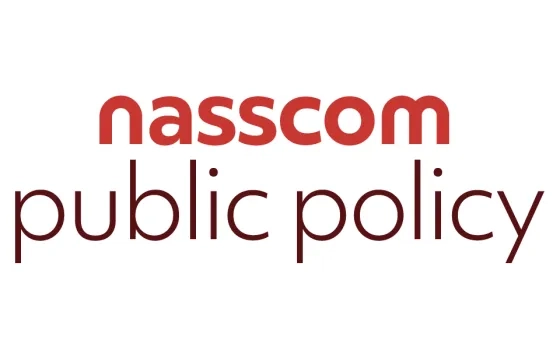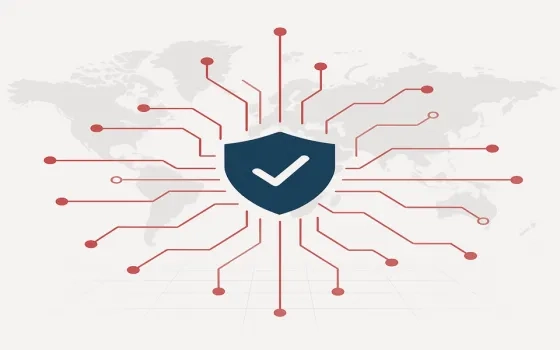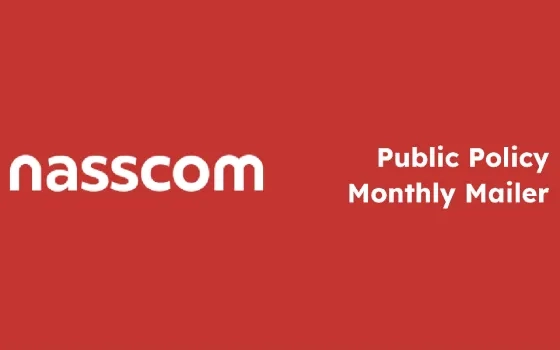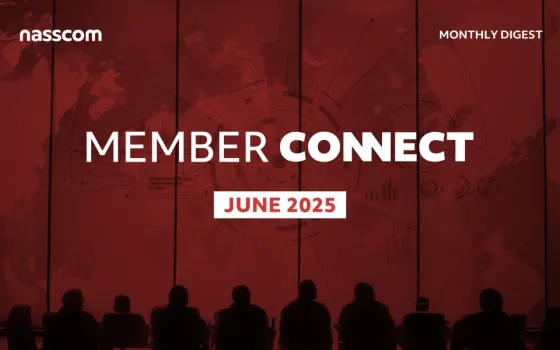| Click here to view full email |
 |
| Government Policy and Engagement Monthly Mailer |
| August 2025 |
Volume 7, Issue 8 |
|
 |
| White Paper- Towards Interoperable Trust Mechanisms for International Personal Data Processing: Analysis of Global CBPR, PRP & CAPE |
| The Global Cross-Border Privacy Rules (CBPR) Forum’s privacy certifications - the Global CBPR and Global Privacy Recognition for Processors (PRP) System officially went live on June 2nd, 2025, with about 100 certified companies covering over 2000 entities. CBPR Forum comprises of India’s important trade partners i.e., Australia, Canada, Japan, South Korea, Mexico, Philippines, Singapore, Taiwan, United States and its associate members include UK, Bermuda, Dubai International Financial Center, and Mauritius. |
| Thailand and Nigeria have also declared their intent to join the Forum this year. It is the largest block of countries, outside EU with an international mechanism to enable cross border flow of personal data. Unlike EU, it is not based on geography and is open to countries which meet certain criteria of protections associated with personal data. |
| Cross-border personal data protection involves complex questions—around interoperability, regulatory assurance, sovereignty, and trade-offs in digital market access. Digital trade agreements are increasingly embedding provisions on data transfers, creating space for negotiated alignment. In parallel, voluntary frameworks—such as Global CBPR which is based on certification and enforcement cooperation models—are being explored to build trust without requiring legal harmonisation. |
| Nasscom has together a White Paper to enable industry, policymakers, and regulators to assess trade-offs, legal gaps, and market-facing implications as India builds its personal data protection ecosystem. The paper builds on the technical workshop Nasscom convened with the MeitY and the MEA in September 2024 on this topic: Technical Workshop on the Global CBPR Forum. Nasscom continues to engage with the industry and government stakeholders on this important topic. (Read more) |
|
 |
| DOT | Feedback on Telecommunications (Telecom Cyber Security) Amendment Rules, 2025 |
| We have requested the DOT to undertake detailed consultation on this topic to enable proportionate, risk-based, and innovation-friendly regulation. We have highlighted concerns about wide-ranging negative unintended outcomes from the proposed amendments on digital businesses across sectors. We have also flagged concerns on the scope of the MNV platform, high operational costs, regulatory overlaps, and the need to align with existing frameworks. (Read more) |
| EPFO | Representation on issues faced by Tech Industry on EPFO processes |
| We have submitted a detailed representation to EPFO outlining key issues impacting the Tech industry. We have highlighted that the auto-transfer functionality of PF in and out of exempted Trusts be made available for faster PF transfers in line with the automatic transfers envisaged in 2017. We do note that, in line with our recommendation, EPFO has significantly improved its functionalities related to Annexure K. However, errors and mismatches in certain cases have been highlighted. We have flagged EPS status mismatches for employees earning above ₹15,000—often arising from incorrect tagging and the lack of a correction facility. Furthermore, the case of rejection of higher pension claims from exempted establishments has also been highlighted by us. |
| We continue to work with the industry and the EPFO to address these challenges and jointly identify solutions that enhance procedural clarity, improve efficiency, and advance ease of doing business across the tech ecosystem. (Read more) |
| BIS | Draft Indian Standard on E-Commerce – Principles and Guidelines for Self-governance |
We provided detailed feedback to the Bureau of Indian Standards (BIS) in the formulation of the draft standard on E-commerce – Principles and Guidelines for Self-Governance. Our ongoing engagement with BIS reflects a shared commitment to developing practical, forward-looking standards that strengthen consumer protection while supporting innovation and ease of doing business. Several key concerns have been addressed through modifications or deletions of earlier provisions. Notable changes include:
- Removal of the prohibition on related or associated sellers from transacting on platforms, ensuring continuity for investment-linked business models.
- Withdrawal of the mandate to publish open API integrations, which could have posed security and interoperability risks.
- Elimination of the requirement to publicly upload detailed KYC procedures, protecting platform security and reducing exposure to potential misuse.
- Correction of definitional gaps, particularly the clarification of terms like "seller" to better reflect the diversity of business models.
- Refinement in disclosure requirements, with obligations on detailed product-level information limited to the checkout stage, reducing compliance burdens while preserving transparency for consumers.
We continue to follow up on key recommendations, including a clearer distinction between goods and services to avoid compliance ambiguity, allowing platforms to standardise seller listings through automated tools, and addressing recurring subscriptions in line with express consent requirements under the DPDP Act. We have also proposed defining platform 'knowledge' as actual knowledge—limited to verified complaints or official orders—and raised concerns over blanket restrictions on bundling and promotions, which are legitimate pro-consumer practices already governed by competition law. For more details, kindly write to swapnil@nasscom.in. |
| STATE GOVERNMENT |
| Jharkhand | Representation to the Government of Jharkhand marking industry concerns regarding cabinet approval of the updated bill for the welfare of gig workers in the state |
| We have raised industry’s concern over the provisions of the Jharkhand Platform-Based Gig Workers (Registration and Welfare) Bill, 2024, recently approved by the State Cabinet. We have cited lack of adequate industry consultation and absence of clarity on whether feedback submitted in 2024 were considered. Key issues in the Bill include - a proposed 1–2% levy on gross revenue (instead of worker payouts), absence of industry/ industry association representation on the Welfare Board, and overreaching powers granted to the welfare board. We have urged for structured stakeholder consultations and wider review of the bill to ensure practical, inclusive, and balanced legislation. The industry remains committed to supporting the government in shaping a forward-looking welfare framework that sustains innovation and growth in the gig economy. (Read more) |
|
 |
| Roundtable on AI & Copyright |
| On July 2nd, 2025, we convened a stakeholder meeting with industry to discuss the ongoing debate arising out of the interface between copyright law and Generative AI. This discussion was important considering that a committee constituted by DPIIT is examining the copyright implications of generative AI. As a member of the committee, Nasscom is actively contributing to the committee work. For more details, kindly write to sudipto@nasscom.in. |
| DPIIT | Enhancing National Single Window System |
| On July 3rd, 2025, we participated in a meeting on the NSWS, chaired by Secretary, DPIIT, Shri Amardeep Singh Bhatia, with participants comprising of tech industry leaders and DPIIT officials. Key points included possible measures to improve the portal’s user experience and robustness for enhancing EODB and possibilities of leveraging emerging technologies integrating emerging technologies. For more information, kindly write to vertika@nasscom.in and swapnil@nasscom.in. |
| MOF | Addressing Taxation Issues for IT-ITES, Ecommerce and Start-ups |
We met the Secretary, Department of Revenue, on July 11th, 2025, for a detailed discussion on issues impacting the technology and e-commerce industry under GST, corporate taxes and international taxation. The key discussion points included:
GST:
- The need for removal of intermediary concept given that past circulars have not been effective in ensuring that IT services are not misclassified as intermediary,
- Challenges faced by IT/ITeS companies operating through overseas branch offices,
- Issues pertaining to tax treatment of delivery charges for food delivery platforms,
- Need for recognition of home state principal place of business for sellers selling through ecommerce operators.
International taxation:
- Need for rationalisation of safe harbour regime and advance pricing agreements under transfer pricing.
- Need to provide tax certainty on PE attribution risk on account of captive data centre being in India.
Corporate Taxes:
- Issues faced by startups and tech industry under ESOP
- Issues under assessment regime, appeals and litigation
- Need for rationalisation of TDS framework
We continue to engage with the industry and the government on these important topics. For more details, kindly write to vertika@nasscom.in. |
| RBI | Discussion on trends in the IT industry and challenges with respect to exports |
| On July 25th, 2025, we had a meeting with the MPD of the RBI regarding the next cycle of monetary policy revision. The agenda of this pre-policy consultation was to understand the issues faced by the IT-ITeS Industry and it provided us a platform to discuss industry trends and insights with the RBI. We also highlighted the FEMA related issues faced during export realisation and other procedural complexities impacting cash flows in the industry. |
| We will be following up with the RBI for suitable next steps. For more details, kindly write to: vertika@nasscom.in and ayush@nasscom.in. |
| M/o L&E | Advocacy on Model Shops and Establishment Framework |
| We had a meeting with the Secretary, Labour and Employment where we highlighted the need to develop a modern model shops and establishment framework in consultations with the States to promote uniformity and ease of doing business across states. We also discussed the status of implementation of the Labour Codes, the issues being faced by the industry with respect to EPFO compliances and the progress under government’s deregulation initiative. We will be following up with the MOLE for next steps. For more details, kindly write to: sudipto@nasscom.in. |
| Delhi Government | Meeting with Special Commissioner EV Cell on Delhi EV Mandates |
| On July 24th, 2025, we participated in a meeting chaired by the Special Commissioner (Electric Vehicles), Department of Transport, Government of NCT of Delhi, to discuss the implementation of the Delhi Motor Vehicle Aggregator and Delivery Service Provider Scheme, 2023. |
| We raised key industry concerns related to the electric vehicle (EV) mandates under the scheme. These included the supply chain constraints, high upfront costs of EVs, financing troubles, and legacy fleet-related issues associated with the scheme’s compliance portal. We emphasised the need for a consultative and phased approach to the implementation of EV targets and requested that the issuance of show-cause notices to aggregators be paused in the interim. These concerns were earlier submitted by us on June 12th, 2025. The Special Commissioner acknowledged the issues raised and agreed to establishing regular industry consultations to facilitate resolution. |
| For further details, kindly write to: swapnil@nasscom.in and prakash@nasscom.in. |
| Telangana |
| Our membership team met with the IT Special Chief Secretary and the Chief Relations Officer (CRO) to discuss policy-level engagements for the IT and GCC segments. The officials were also briefed on the progress of Nasscom’s Centres of Excellence in AI (T-AIM) and Cybersecurity, with a follow-up meeting planned for a detailed review. In addition, the team has submitted its recommendations for the proposed GCC policy to the CRO. |
| Webinar on AI and Copyright | Legal clarity for start-ups in India |
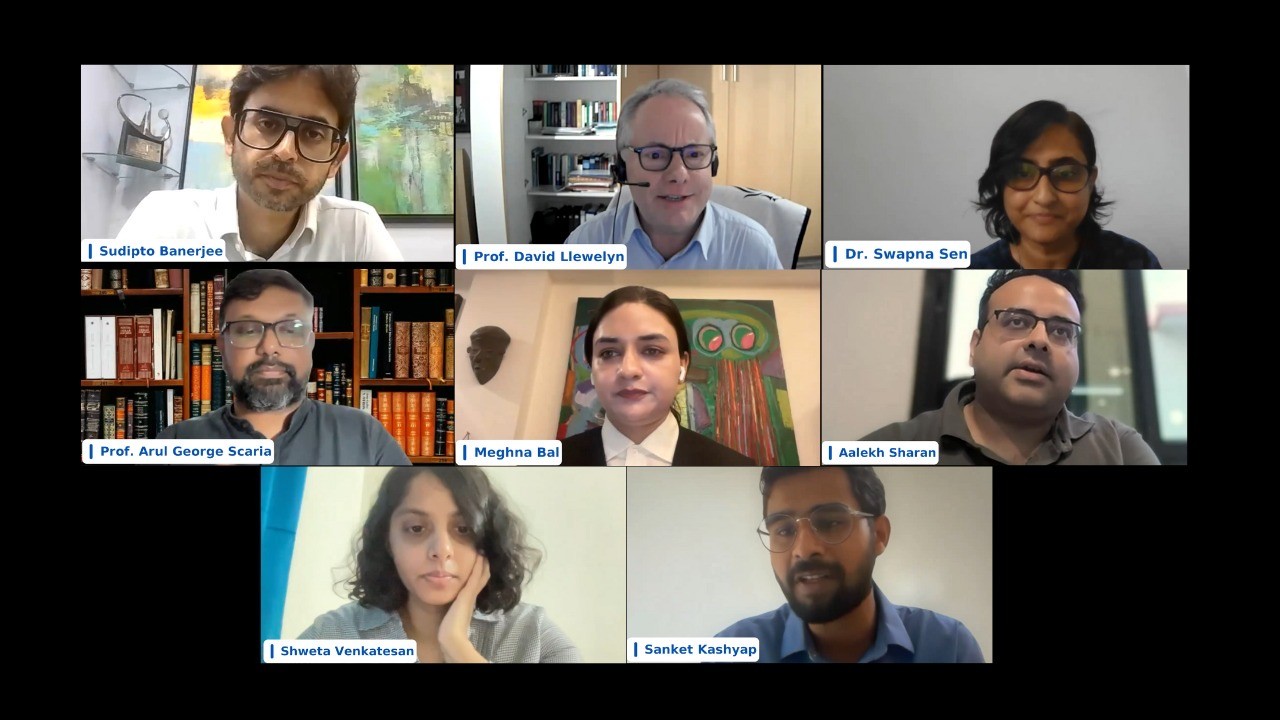 |
| On July 30th, 2025, we participated in a webinar, organised by ESYA Centre, to discuss the challenges faced by Generative AI start-ups in the current regulatory regime where there is lack of legal clarity in training of AI models. |
| Sudipto discussed the Gen AI landscape in India with a focus on how the start-ups are positioned in the AI value chain, he also stressed the critical need for clarity and certainty in India’s copyright law to enable training of AI models, while preserving creators’ legitimate rights. |
|
 |
| Call for Inputs | Draft Rules to Further Amend the Patent Rules, 2003 |
| On July 16th, 2025, DPIIT, MoCI, issued the Draft Patent Rules. Among other changes, the Draft Patent Rules provide specific details on the new adjudicatory (s. 124A) and appellate processes (s. 124B) under Patents Act. These provisions were first inserted by the Jan Vishwas (Amendment of Provisions) Act, 2023. The deadline for submission is August 17th, 2025. Kindly reach out dhananjay@nasscom.in and sudipto@nasscom.in, latest by August 13th, 2025. |
| Call for Inputs | Draft National Telecom Policy 2025 |
| On July 23rd, 2025, the DoT published the draft NTP for public consultation. The policy is anchored in six strategic missions: Universal and Meaningful Connectivity, Fostering Innovation, Promoting Domestic Manufacturing, Ensuring a Secure and Trusted Network, Enhancing Ease of Living and Doing Business and Advancing Sustainable Development. The NTP 2025 is designed to have a wide-ranging impact across the entire Indian telecommunications ecosystem. Kindly send us your feedback at vertika@nasscom.in or ayush@nasscom.in latest by 14 August 2025. (Read more) |
|
 |
| EPFO | Restoration of International Workers Portal |
| Following sustained advocacy by Nasscom, the EPFO’s International Workers Portal (IWP)—which had been non-functional for several months—has now been restored and made accessible from foreign locations. The portal’s inaccessibility had caused significant disruptions in the issuance and extension of Certificates of Coverage (CoC) required for employees deputed abroad under India’s Social Security Agreements. Nasscom intervention helped resolve this critical issue, enabling timely processing of new and extended CoCs. As a long-term solution, we are now working closely with EPFO to integrate the IWP with the main EPFO portal, ensuring seamless access and improved service continuity for global mobility cases. |
| AI |
Artificial Intelligence |
| API |
Application Programming Interface |
| BIS |
Bureau of Indian Standard |
| CGPDTM |
Controller General for Patents, Designs, and Trade Marks |
| DFS |
Department of Financial Services |
| DoCA |
Department of Consumer Affairs |
| DoT |
Department of Telecommunications |
| DPIIT |
Department for Promotion of Industry and Internal Trade |
| DTD |
Delhi Transport Department |
| EPFO |
Employees’ Provident Fund Organisation |
| EPS |
Employee Pension Scheme |
| ESOP |
Employee Stock Ownership Plan |
| EV |
Electric Vehicles |
| FEMA |
Foreign Exchange and Management Act |
| GCC |
Global Capability Centre |
| GST |
Goods and Services Tax |
| IT |
Information Technology |
| KYC |
Know Your Customer |
| MEA |
Ministry of External Affairs |
| MNV |
Mobile Number Verification |
| MeitY |
Ministry of Electronic and Information Technology |
| MoCI |
Ministry of Commerce and Industry |
| M/o L&E |
Ministry of Labour and Employment |
| MoWCD |
Ministry of Women and Child Development |
| MPD |
Monetary Policy Department |
| NSWS |
National Single Window System |
| NTP |
National Telecom Policy |
| RBI |
Reserve Bank of India |
| TDS |
Tax Deducted at Source |
| UAN |
Universal Account Number |
|
|
| www.nasscom.in |
    |



















